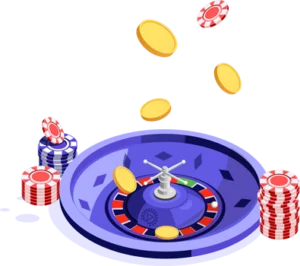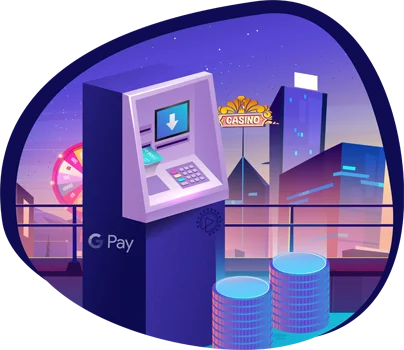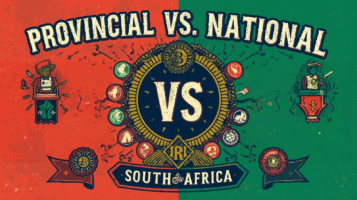Counting Cards in Blackjack: Every Important Detail

Blackjack, a game of skill and chance, has captivated players for centuries. Its allure is often amplified by tales of strategic minds who have seemingly defied the odds, most notably through the technique of card counting. This method, popularised in countless Hollywood films, promises an edge against the house. But what exactly is card counting, how does it work, and is it a viable strategy for players in South Africa, especially in the realm of online casinos?
In this guide, we'll delve into the mechanics of card counting, explore its legality, and assess its practical application for South African blackjack enthusiasts, whether they're playing at a land-based establishment or an online casino in South Africa.
The Allure of Card Counting in Blackjack
At its core, blackjack is about getting a hand value as close to 21 as possible without exceeding it, aiming to beat the dealer's hand. The game's simplicity belies a deeper strategic layer, where decisions like ‘hit', ‘stand', ‘double down', or ‘split' can significantly impact outcomes. The ultimate hand, a ‘blackjack', consists of an Ace and a 10-value card (10, Jack, Queen, King) dealt as the first two cards.
Card counting is a strategy designed to give players an advantage by tracking the ratio of high-value cards (10s, Jacks, Queens, Kings, Aces) to low-value cards (2s, 3s, 4s, 5s, 6s) remaining in the shoe. When there's a higher proportion of high cards left, the player's odds improve, as these cards are more likely to result in a blackjack, a dealer bust, or strong player hands. Conversely, a higher proportion of low cards favours the dealer.
By knowing when the deck is “rich” in high cards, a card counter can adjust their betting strategy, increasing their wagers when the odds are in their favour and decreasing them when the deck is “poor.” This subtle shift in strategy is what gives the card counter a theoretical edge over the casino, turning a game of chance into one where skill can, in theory, tip the scales.
Is Card Counting Legal in South Africa?
The question of legality surrounding card counting is a common one, and the answer, particularly in South Africa, comes with nuances. Generally, card counting is not illegal. It's not considered cheating because players are simply using their mental faculties to track cards, not employing external devices or manipulating the game in any way. However, this doesn't mean casinos welcome it.
Land-based casinos, whether in South Africa or globally, operate on the principle of “right of admission reserved.” If a casino suspects a player is counting cards, they are well within their rights to ask that player to leave, or even ban them from the premises. They might employ various countermeasures, such as shuffling more frequently, using more decks, or even identifying and barring suspected counters. While you won't be arrested for counting cards, you could certainly find yourself unwelcome at a physical casino table.
When it comes to online blackjack, the situation is different. Since you're playing from the comfort of your home, a casino cannot physically remove you. However, the effectiveness of card counting in the online environment is severely diminished, making the legality question almost moot. We'll explore why in the next section.
How Card Counting Works: The Hi-Lo System
While there are several card counting systems, the ‘Hi-Lo' method is the most widely known and taught due to its relative simplicity and effectiveness. Here’s how it works:
- Assign Values: Each card is assigned a value:
- Cards 2 through 6: +1
- Cards 7, 8, 9: 0
- Cards 10, Jack, Queen, King, Ace: -1
- Maintain a Running Count: As cards are dealt from the shoe, you mentally add or subtract their assigned values. This cumulative total is your ‘running count'. For example, if a 5 (+1), a King (-1), and an 8 (0) are dealt, your running count would be +1 – 1 + 0 = 0.
- Calculate the True Count: The running count alone isn't enough, especially in games with multiple decks (which is standard in most casinos, including those in South Africa). You need to convert the running count into a ‘true count' by dividing it by the estimated number of decks remaining in the shoe. For instance, if your running count is +10 and you estimate 2 decks are left, your true count is +5. This step is crucial because a +10 running count in a 6-deck shoe is less significant than a +10 running count in a 2-deck shoe.
- Adjust Your Strategy:
- Betting: When the true count is positive (indicating more high cards remain), you increase your bets. The higher the true count, the more you bet.
- Playing Decisions: A positive true count can also influence your playing decisions, deviating from basic strategy. For example, you might be more inclined to hit on a stiff hand (like 16) against a dealer's 10 if the true count is very high, as the probability of drawing a low card is greater.
Mastering the Hi-Lo system requires significant practice, concentration, and the ability to perform mental arithmetic quickly and accurately under pressure. Even a small mistake can throw off your entire count and strategy. This is why many players find it challenging to execute effectively in a real casino environment.
Card Counting in Online Casinos in South Africa
For players in South Africa looking to apply card counting techniques, the online casino environment presents unique challenges that render the strategy largely ineffective. Here's why:
- Random Number Generators (RNGs) for Virtual Games: Most standard online blackjack games use a Random Number Generator (RNG) to shuffle the deck after every single hand. This means that for each new hand, you're essentially playing with a freshly shuffled deck. The cards dealt in the previous hand have no bearing on the next, completely negating the principle of card counting.
- Multiple Decks and Frequent Shuffles in Live Dealer Games: While live dealer blackjack offers a more authentic casino experience with real cards and human dealers, it's still not conducive to card counting. Live blackjack tables typically use 6 to 8 decks. More importantly, the dealer will often shuffle the shoe long before all cards have been dealt – sometimes after only 50-75% of the cards have been played. This “shoe penetration” is too shallow for a card counter to gain a significant edge, as the count rarely becomes high enough to warrant increased bets before a shuffle resets everything.
- No Physical Presence: The anonymity of online play means you can't be physically removed for counting cards. However, the technical setup of online blackjack ensures that the strategy simply doesn't work, making the point of legality irrelevant.
Therefore, while the concept of card counting remains fascinating and a testament to strategic thinking, it's not a practical or profitable strategy for online blackjack players in South Africa. Instead, players should focus on mastering basic blackjack strategy, managing their bankroll effectively, and enjoying the game responsibly.
In conclusion, card counting is a sophisticated strategy that, when executed perfectly, can give a player an edge in land-based blackjack. However, its application is fraught with challenges, from casino countermeasures to the sheer mental discipline required. For those playing at online casinos in South Africa, the technological design of the games effectively neutralises any potential benefit of card counting. Our advice for 2025 and beyond remains: enjoy blackjack for its entertainment value, play responsibly, and rely on sound basic strategy rather than attempting to count cards online.
Most Recent News
Get the latest information








